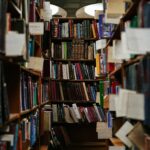The Rule of Law is in Danger
America has always been a land of rules. And these rules, or laws, are created by elected individuals that are supposed to be representative of the people governed by these rules. In theory, rules are created by some kind of consensus—this is the basic principle of our representative democracy.
The rule of law has been a hot topic as of late, even if it hasn’t been explicitly discussed. Last summer, we saw laws broken during Black Lives Matters protests that turned into riots in cities across America. California Governor Gavin Newsom broke his own indoor dining mandate at a restaurant amidst COVID lockdowns and Speaker of the House Nancy Pelosi got her haircut when hair salons were supposed to be closed.
But the rule of law gets murky, especially when laws are no longer being created by the legislature. In two of those instances, the rules that were being broken were executive order mandates. These technically do carry the force of law when penned, especially during a state of emergency. But they are created by one sole elected official, who rarely garners support from over 50% of the population.
Not to mention, COVID-19 has given unelected government officials more power than ever, and this is unsettling to voters, even if they can’t pinpoint exactly why. Just recently, the Center for Disease Control and Prevention (CDC), a large unelected administrative body within the federal government, extended the eviction moratorium because “failure to make rent or housing payments could be detrimental to public health control measures to slow the spread of SARS-CoV-2, the virus that causes COVID-19.”
Even more startling are the criminal penalties for not complying with the CDC’s order—a potential $100,000 fine and one year in jail or $250,000 and one year in jail if for some reason the evicted individual dies.
Regardless of whether or not this is the “right” thing to do, or if rent relief is really something that will help people struggling from the COVID pandemic, this type of lawmaking seriously undermines the rule of law in the United States. The CDC is not representative of the people—literally or otherwise. If executive agencies can make up rules as they see fit, then what is the purpose of having a legislature and how are the people going to be heard?
Last January we all witnessed in shock and horror as the Capitol was ransacked and the very backbone of our democracy was threatened. If we continue to circumvent the appropriate channels for legislation (i.e. Congress) then we will continue to lose the faith of the people whose only role in government is to vote for representatives. If our representatives cannot agree, and nothing gets done, that’s a reflection of the division in our country. Executive agencies should not ram through their agendas and impose them on many people who don’t have aligned beliefs.
Mask mandates were largely followed in the beginning of the pandemic, but now with COVID surging again, after people got a taste of mask-less life once more, the outcome of such mandates is unclear. And as our government continues to sow distrust amongst the voters, there is serious risk of our democracy being wounded.
The legislature needs to take back its law-making power and the executive branches need to give up the power they stole. The health of our democracy depends on it.




